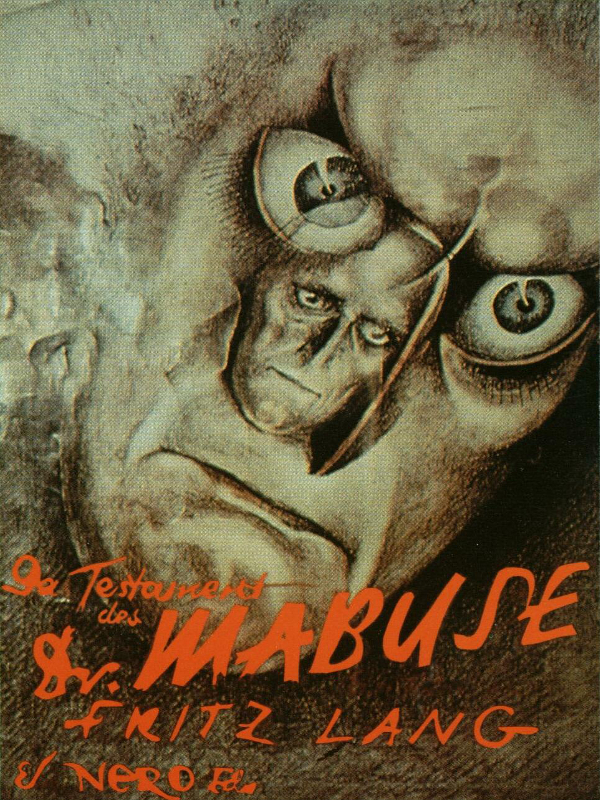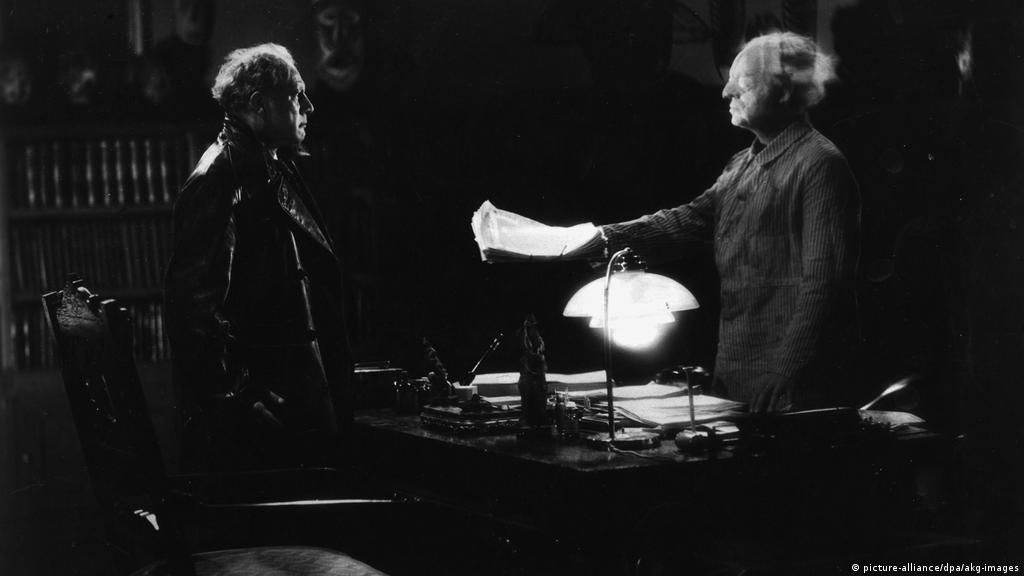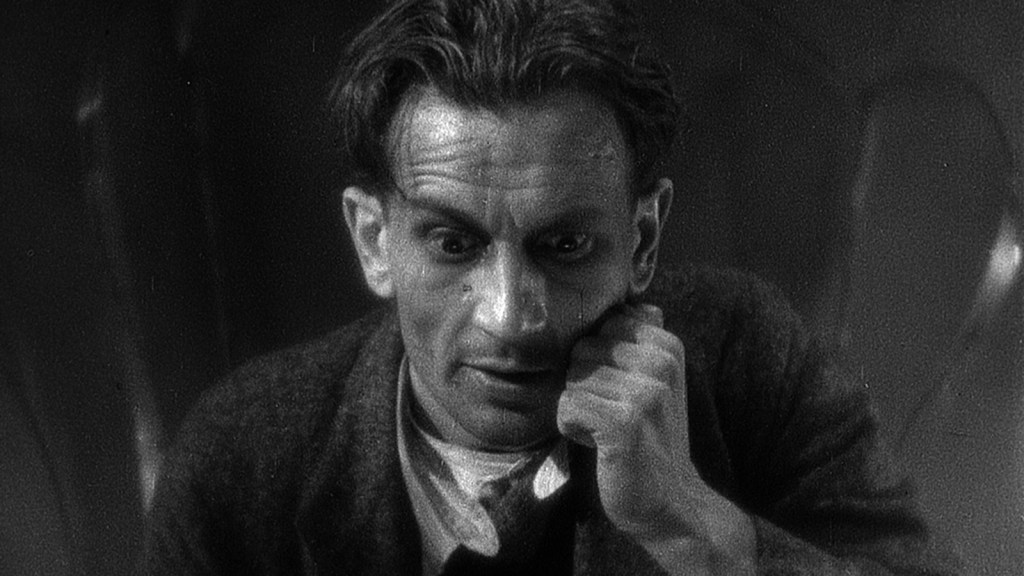Das Testament des Dr. Mabuse
Director: Fritz Lang
Writer: Thea von Harbou
Based on: Norbert Jacques‘ character
Cast: Rudolf Klein-Rogge, Gustav Diessl, Rudolf Schündler, Otto Wernicke, Oscar Beregi Sr., Oskar Höcker, Wera Liessem, Theodor Loos, Karl Meixner
Seen on: 26.7.2021
Plot:
Hofmeister (Karl Meixner) knows that he is on the trail of something big – something that could get him back into the good graces of Inspector Lohmann (Otto Wernicke). There is a man who controls the crime in the city and Hofmeister has discovered his name: Mabuse. Only before he can tell Lohmann all about it, Hofmeister is attacked. And Mabuse is a psychiatric patient under the care of Professor Baum (Oscar Beregi Sr.) with a brilliant criminal mind, but no way to communicate with anyone, much less outside the hospital. Lohmann can’t make heads or tails of this story – but the crimes continue.
Das Testament des Dr. Mabuse is a German cinema classic and it’s easy to see why, even apart from its political history. Mabuse is an interesting character – kind of a proto-Joker, I’d say – and the film has very imaginative cinematography.
Das Testament des Dr. Mabuse was banned in Germany by the Nazis, and Lang later stated that he actually drew on Nazi propaganda, and Hitler’s Mein Kampf to portray Mabuse (given that author von Harbou was a Nazi, though, this is kinda doubtful, if you ask me). If it hadn’t been for the ban and the literature about the film that all come back to this, I doubt I would have read it as critical of Nazis myself. I mean, yeah, you’ve got a big criminal organisation that follows a cult leader personality, but Mabuse is an anarchist, talking about how crime only exists to destroy safety and order (and that is his goal) which seems to me quite the opposite of the Nazi talking points who want to eradicate all crime and insecurity until there is nothing but order. (Very simply put.)
In that, Mabuse reminded me more of The Joker, although he is all seriousness and doesn’t have a sense of humor. But their goals seem more aligned than Mabuse’s and the Nazi’s. Anyhoo, I guess it already becomes apparent that Mabuse is a really interesting character, and despite not actually taking that much time of the film, he can be discussed at length.
In addition that that, Das Testament des Dr. Mabuse draws on German expressionism and gives us some really interesting visual moments. I am always impressed with how great special effects (especially double exposure effects) were at the time already, and Lang combines both elements for some really fascinating visual language that may be dated in how we think about mental illness today (or should, at least), but is still engaging.
In short, while the film may not be the best film I’ve ever seen, it’s definitely a film I enjoyed and where it’s very understandable that it’s considered a classic of modern cinema.
Summarizing: still worth seeing.


